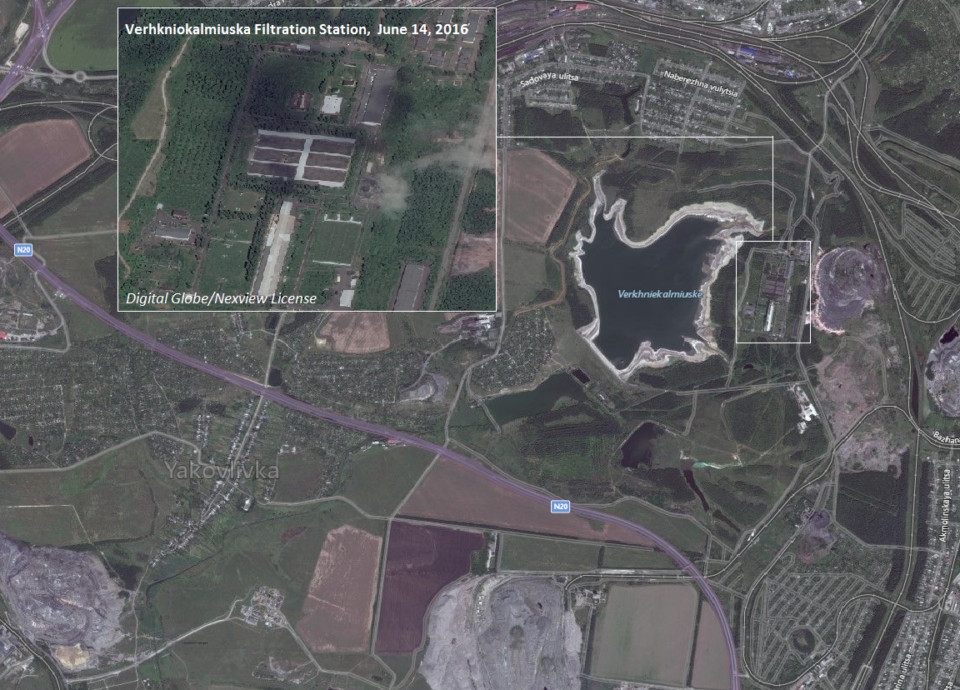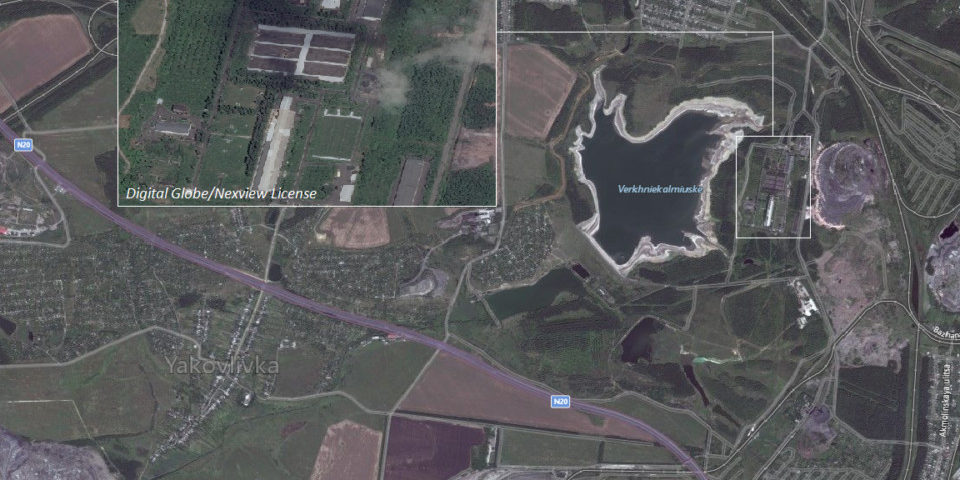Chlorine stored at water filtration sites in Ukraine pose a risk to human health and the environment if damaged.

Over the last two months, increased shelling in and around industrial sites north of Donetsk have, apart from the direct civilian casualties costs, posed huge public health and environmental risks. Apart from the wider environmental impacts caused by targeting industrial sites, on several occasions, Russia-backed forces have hit various water treatment stations. These facilities host a substantial amount of liquefied chlorine gas stockpiles used for water purification, a much-needed supply in cities lacking sufficient drinking water for the civilian population (including in Donetsk, which they control). Any direct hit on these stockpiles could possibly lead to a mass casualty incident with clouds of chlorine gas spreading over nearby populated areas. As fighting around sensitive sites in Donetsk are frequently erupting, it seems more a matter of time before this goes awfully wrong. This article will explore what these risks are, where it could occur, and what other water related problems could follow from targeting critical infrastructure.





